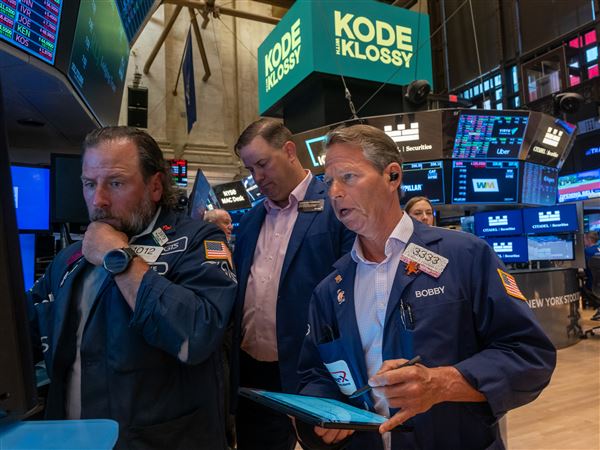There is -- apologies for the pun -- a beta way to invest.
If you're like many mutual-fund investors, you own a mix of actively managed stock funds that tap into a host of market sectors, such as large companies, small stocks and foreign shares. And, of course, you are hoping to beat the market.
Problem is, a lot of what you're paying for isn't stock-picking skill, but basic market exposure -- and you could get that a whole lot cheaper by buying market-tracking index funds.
Indeed, institutional investors have woken up to this fact. It explains their enthusiasm for not only prosaic index funds, but also exotic investments like hedge funds and venture capital, where returns depend less on the market and much more on the investment manager's skill.
Slashing costs. As regular readers know, I believe the odds of beating the market over the long run are so slim that it isn't worth the effort. But if you're going to try, at least go about it in an intelligent fashion.
That brings me to a key concept. Every fund's performance can be split into two parts. First, there's the return that a fund should get simply because it is invested in the market. A fund's sensitivity to market movements is captured by a statistical measure known as "beta."
Second, there's the performance that can't be explained by the fund's market exposure. This "unexplained" return, which reflects the manager's luck or skill, is often dubbed "alpha" by academics and Wall Street experts.
When you buy actively managed stock funds, you are buying both alpha and beta. You get the underlying market's annual performance, plus or minus a few percentage points, depending on whether the manager picks well or picks badly. Unfortunately, even if a manager picks reasonably well, the stocks selected often aren't good enough to overcome the drag from the fund's fees.
Those fees can be hefty. Suppose you have $300,000 spread among stock funds that charge 1.5 percent of assets each year. That works out to $4,500 annually for active management -- and we haven't even figured in the funds' trading costs.
Sound steep? Imagine, instead, that you stashed $240,000, or 80 percent of your stock portfolio, in a mix of U.S. and foreign-stock index funds that charge 0.25 percent a year. Result: You have locked in the stock market's return with 80 percent of your portfolio -- at a cost of just $600 a year.
"The idea is not to overpay for beta," says Greg Ehret, co-head of SSgA's Advisor Strategies group, a unit of Boston's State Street Corp. "For your market exposure, you might as well use the most efficient vehicles possible," such as exchange-traded index funds or regular index-mutual funds.
Boosting returns. What should you do with your portfolio's other 20 percent, or $60,000? This is your chance to earn alpha -- and you might want to take a few cues from institutional investors.
Check out the accompanying chart, which is based on data from Pensions & Investments, the biweekly newspaper. Over the past decade, pension funds have favored the two extremes, buying both humdrum index funds and also alternative investments like private equity, venture capital, real estate and hedge funds.
True, hedge funds and their ilk often charge outrageous expenses. Still, if you index 80 percent of your stock portfolio and stash 20 percent in exotic alpha investments, your total costs should be far lower than if you had bought a conventional portfolio of actively managed funds.
The idea of separating alpha and beta might seem similar to the strategy of "core and explore." With core and explore, however, investors will often purchase the Standard & Poor's 500-stock index of big blue chips and then buy actively managed funds for smaller companies and foreign stocks.
By contrast, when splitting alpha and beta, you really want to index both U.S. and foreign markets, and then tack on bets that have the potential to deliver a lot of alpha.
For instance, you might overweight attractive sectors or purchase a handful of your favorite stocks. Even if you get it wrong, you won't do too much damage to your wealth, because you're only playing with a small portion of your portfolio. "It's like going to Las Vegas and putting $500 in your pocket, and saying, 'That's it,' " says Donald Mulvihill, a managing director with Goldman Sachs in Chicago.
Alternatively, you could buy funds that focus on a concentrated portfolio of some 20 to 40 stocks, such as CGM Focus, Fairholme and ICAP Select Equity, or purchase mutual funds that use hedge-fund-type strategies, like James Market Neutral and Laudus Rosenberg Value Long/Short.
"If you're buying a satellite investment, buy something with a lot of alpha in it," Mr. Mulvihill says. "Don't buy a small amount of alpha with a lot of beta," which is what you're getting with the typical stock fund.
Keep three things in mind. First, your alpha bets could generate big tax bills, so keep them in your retirement account.
Second, while a straight stock bet will give you both alpha and beta, hedge-fund-type mutual funds often aim to eliminate basic stock-market exposure. They do this by taking offsetting bets, both buying promising shares and simultaneously "shorting" unattractive stocks, in a bet they will fall in value.
As a result, their performance isn't driven by broad stock-market swings. Thus, you should arguably substitute these funds for part of your bond portfolio.
Finally, keep close tabs on how your alpha bets perform. Not doing especially well? Maybe you should give up the pursuit of alpha -- and stick exclusively with low-cost index funds.
First Published: February 8, 2006, 5:00 a.m.















